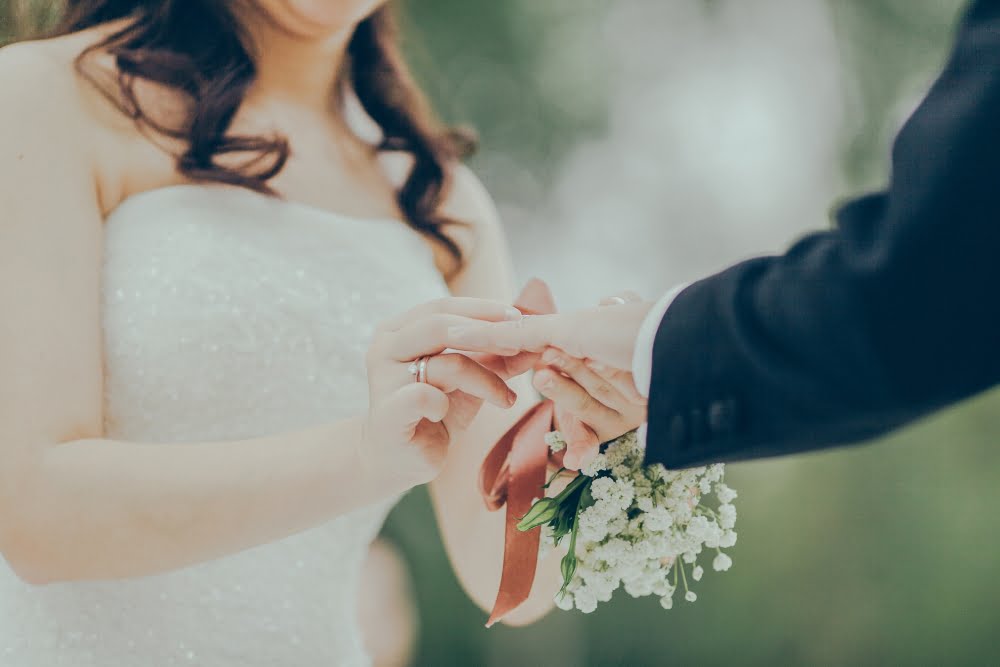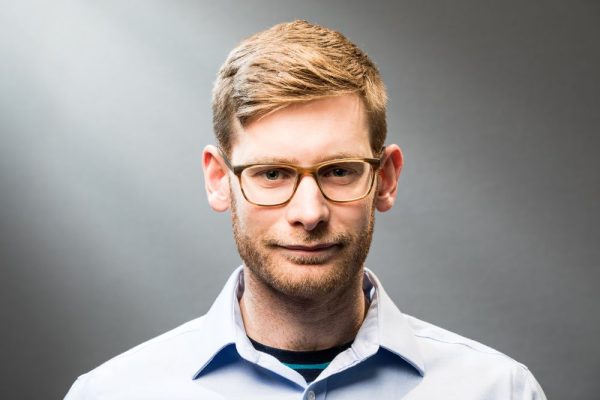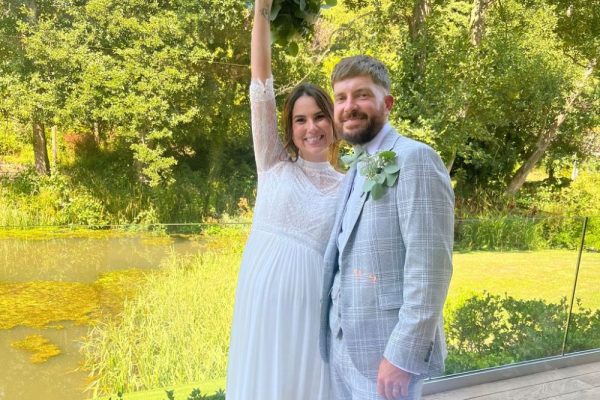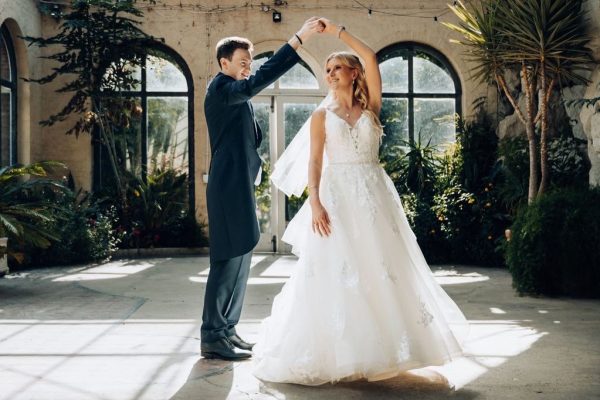When it comes to planning your big day, choosing a wedding photographer is almost as big a decision as picking your wedding dress.
Finding someone to photograph your wedding takes time and research, but find the right one and you’ll be rewarded with photos that you love and will treasure forever, that will transport you back to the big day every time you open your wedding album.
We spoke to Clare Moreton, photo expert at photo book brand CEWE, for her top tips on how to find the right wedding photographer for you, who will capture your day in at its glory.

Decide on a style of wedding photography
The first thing to decide upon is which style of wedding photography you prefer.
Once you know what you want your pictures to look like, it will be easier to find the right person to take them. There are countless sub-styles and variants out there, but the three main styles of wedding photography are:
Traditional wedding photography
Classic and formal, these images are similar to what you might find in your parents’ wedding album. Consisting mainly of carefully posed portraits of the couple, as well as group shots of the wedding party and family, a traditional wedding photographer will pose most shots and will usually shoot from a set list of photographs.
Photojournalistic/ documentary wedding photography
A more contemporary style of wedding photography, these photographers will focus on capturing candid, spontaneous moments. Expect your photographer to spend more time recording events rather than staging them.
With this kind of photography, you’ll hardly know they’re there, which is ideal for people who aren’t comfortable in front of the camera.
Creative wedding photography
Creative wedding photography is becoming ever more popular. Inspired by editorial fashion photography, the goal is to create high impact, visually striking images.
Shots are posed or set up, as with traditional wedding photography, but the photographer might use unusual poses, action shots and strong or unusual lighting. If you don’t feel at ease in front of a camera, it might be better to avoid this style of wedding photography.
Many photographers can provide a range of shots to suit your needs, but do keep your preferences in mind when you begin your search and select a photographer whose strengths align with your tastes.

Do your research
Your first consideration in finding the right photographer is likely to be distance.
There’s no sense falling in love with a photographer’s portfolio only to find out they live a 10 hour drive away! (Unless you’re so smitten with their style that you’re willing to cover their travel and accommodation costs on top of their fee, of course.)
Most professional photographers have the area they commute to clearly stated on their websites, making Googling and asking for recommendations from friends a great place to start.
Similarly, if you’re planning on getting married abroad, it’s wise to search specifically for photographers that specialise in destination weddings.
Create a shortlist of photographers to contact. Most have blogs and websites featuring examples of their work, and if they’re on social media, check Facebook and Twitter to see what kind of feedback they’ve received.
Meet in person
You’ll be spending your whole wedding day with your photographer, so it’s important that you get along. Arrange to meet informally before you make a booking to see if you click and to make sure you feel comfortable with them – you may well adore their photos, but have a personality clash – it happens to the best of us!
Weddings can be stressful, so it’s also worth discussing how you envisage them fitting into your day. Will you need a photographer with a strong personality who can direct your large family into a classic group shot? Or do you need a photographer who can blend in and get those great photojournalistic shots of camera-shy relatives? These are all considerations that have more to do with your photographer’s personality than their technical skills.
You should leave your meeting feeling excited, confident and assured. Your photographer is the one person you trust to record your special day and give you memories to look back on for years to come, so you need to have faith in them. If they seemed reluctant to meet some of your requests, then it might be better to meet with someone else. You don’t want to be directing them on the day; you want to leave the photography entirely in their hands and trust they’ll deliver.
Feel free to meet with several different photographers, until you meet one that you gel with.

Visit your venue together
If possible, take your photographer along to your wedding venue so you can point out your favourite spots and discuss potential photos you’d like them to capture.
They’ll be able to explain what’s feasible and are also likely to have plenty of creative ideas you hadn’t considered. If both the photographer and venue are local to you, chances are they’ll have shot in the location before, and will be familiar with where is good for photos.
Your venue visit is also a great time to discuss contingency plans. You might have your heart set on some romantic shots by the lake, but what if it rains? Your photographer can help you with advice on how to take amazing wedding photos in the rain.
Plan important shots
Even if you’re opting for candid, documentary-style photography, there are probably still some must-have shots you don’t want your photographer to miss. Your photographer probably already assumes you’ll want them to catch the first dance and cutting the cake, but if you have other specific requests, let them know in advance what you have in mind.
This also applies to details relevant to your family situation that will impact the photographs. For example, divorced parents who would rather be photographed separately or with their own partners, or perhaps an elderly grandparent who needs to remain sitting for group shots.
Ask about image rights
Although you’ll be paying for your photography, most contracts stipulate that the photographer owns the rights to all photos taken on your big day.
This means you may have to buy the rights to the images if you want to print them or turn them into a photo book. Check with your photographer beforehand to ensure you know exactly what you can and can’t do with your photos.
The paperwork is important
In a similar vein to the last point, get your agreement in writing! A professional photographer should have a contract in place for you to sign, which will outline exactly what you should receive from them and how much it will cost. This is to protect both you and your photographer, so always ensure you read it and are happy before you sign.
Trust your photographer
Most importantly of all, trust your wedding photographer! You’ve found a talented person whose style you love, and they’re just as invested in getting beautiful photographs out of your special day as you are.
If they inspire confidence, step back and let them do their thing. Give them the space and creative freedom to capture the best parts of your day through their unique lens, and you’ll be rewarded with stunning photos to enjoy for years to come.




